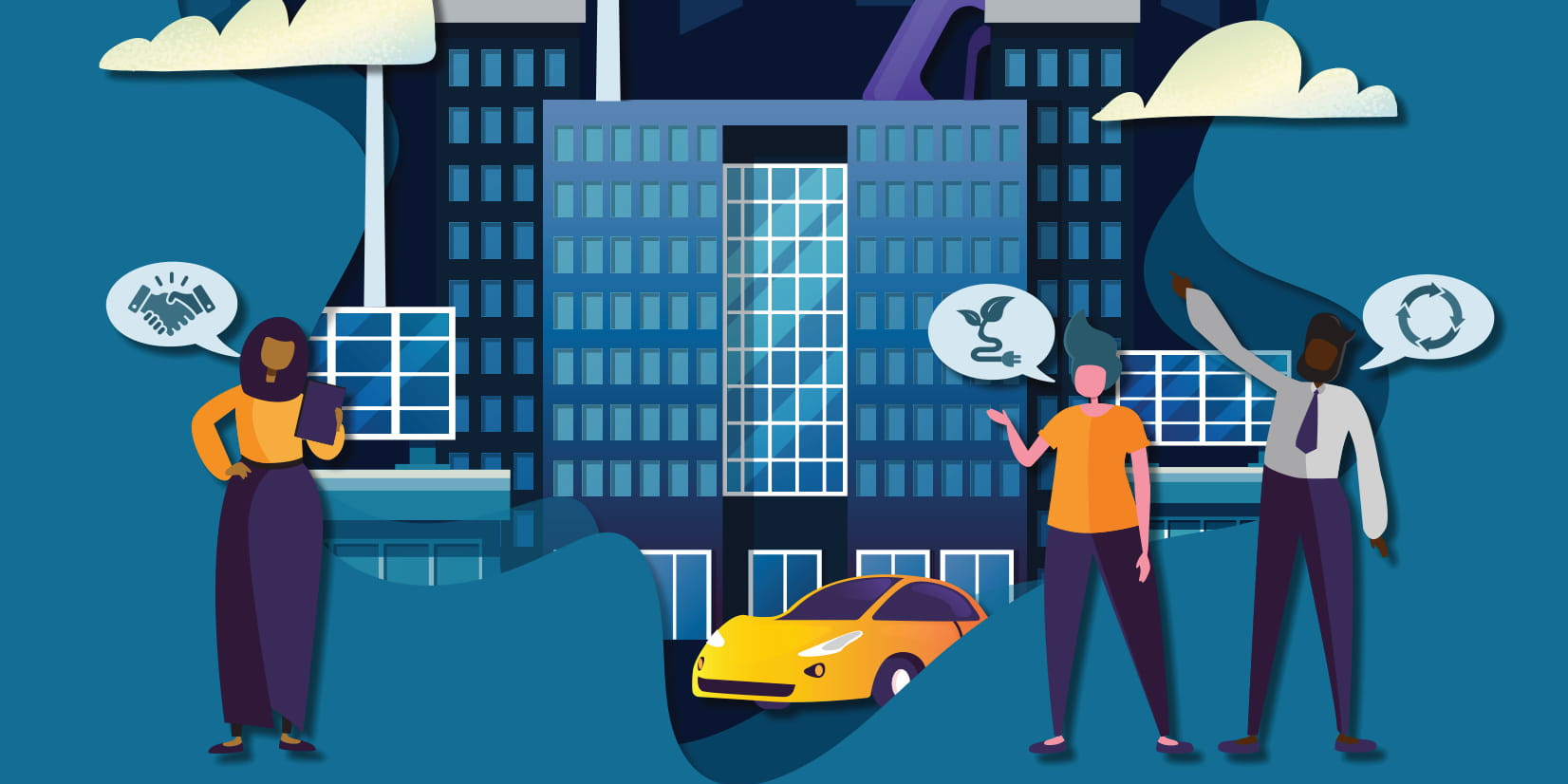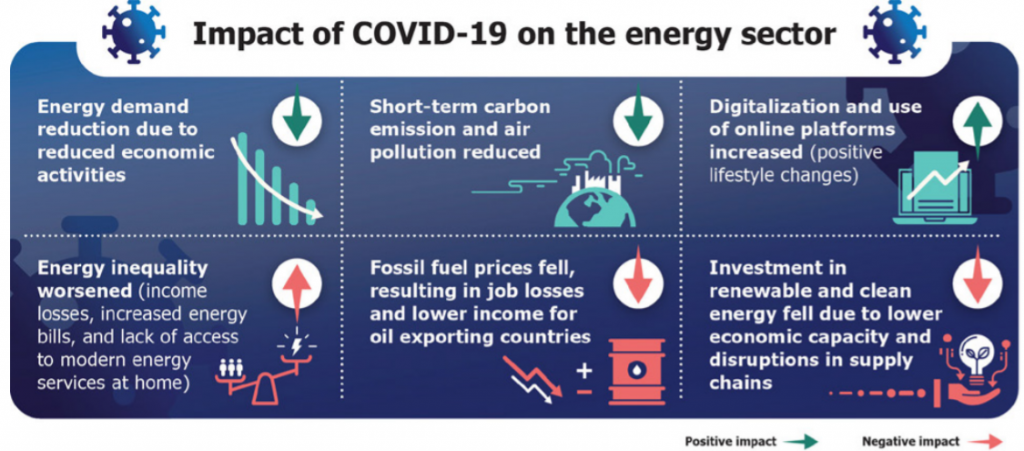
As a result of the pandemic’s confinement and containment policies, energy demand and resulting energy-related carbon emissions declined by an estimated 2.4 billion tonnes in 2020 – a record drop according to researchers at Future Earth’s Global Carbon Project. However, the reduction is likely to be short-lived if structural changes do not occur.
The COVID-19 pandemic has caused foreseeable positive and negative disruptions to the global energy sector. This has revealed opportunities that can be learnt from to meet Sustainable Development Goals (SDGs) and the Paris Agreement pledges, with the positive disruptions showing us the possibility of a more sustainable and resilient future.

The ISC-IIASA Rethinking Energy Solutions Report recommends actions based on the opportunities and vulnerabilities in energy systems that the COVID-19 pandemic has brought to light.
“The pandemic is a threat but also an opportunity because it showed that the system we have spent a lot of money and resources on is not working the way it should, so the crisis should be used to put new budgets, take new actions and rebuild society”
– Behnam Zakeri, Research Scholar, IIASA
The report highlights that solutions previously thought to be out of reach are far more possible than expected. One such positive outcome is the digitalization of physical activities, such as attending work, schools, conferences and other gatherings online. This has resulted in a short-term lifestyle changes — introducing and normalizing digital solutions for a mass audience — which the report recommends capitalizing on in a post-COVID society.
Some companies, like Spotify, a music streaming service, have announced that they will let their employees work remotely from anywhere after the pandemic. The report suggests that more companies and governments should do the same, as digitalization offers opportunities to use resources more efficiently, and so has the potential to make consumption more sustainable and to reduce carbon footprints.
Efforts to digitalize and reduce the population’s carbon footprint work hand-in-hand with the need to reinvent urban spaces to reach the SDGs and combat climate change.
Cities consume 60-80% of global energy and produce more than 70% of carbon emissions. What’s more, 70% of the world’s population is projected to live in urban areas by 2050.
The report proposes that cities should be redesigned into more sustainable ‘urban villages’ so that they are optimised for energy efficiency. One way to do this would be to redesign cities into compact neighbourhoods where all amenities (shops, offices, schools, etc.) are within walking distance. Paris, France, for example, promotes self-sufficient neighbourhoods, with all the essential amenities placed within a 15-minute radius. Several other cities like Melbourne, Australia, with its “20-minute neighbourhoods” and the Nordhavn “5-minute neighbourhood” in Copenhagen, Denmark, are promoting this new standard for the use of space and sustainable mobility.
Another key approach to reinventing urban spaces is prioritizing nature-based solutions by using parks, green roofs, green walls and blue infrastructure to combat climate change and connect the population back to nature. This also means centring public spaces around people, by converting street spaces from car use to sidewalks and bike lanes, and enhancing the quality and safety of walking and biking infrastructures.
The report also recommends that cities be rebuilt to incorporate renewable energy. The costs for renewable technologies are declining quite fast, but Zakeri explained that the problem with moving to renewable energy is not the cost but a lack of understanding. Consumers, experts and governments lack the knowledge to distribute, access and install these technologies. However, in recent times, scientists and other experts have brought more awareness to them and are helping the trend move forward.
The report states the importance of developing net zero-energy communities that have a holistic approach to energy-efficient building renovation and construction of new buildings. The net zero-energy design must consider the energy interactions between individual buildings and the broader energy system on a local level.
These recommended actions aren’t just about energy efficiency but about creating a more fulfilling life for all.
“Rebuilding cities to be more sustainable and resilient [to future crises] not only has the potential to reduce energy consumption but also create a more joyful lifestyle that improves the well-being and experience of people living in a city”
– Behnam Zakeri, Research Scholar, IIASA
For more information on rebuilding urban spaces, and addressing energy lessons from the COVID-19 pandemic read the ISC-IIASA Rethinking Energy Solutions Report.
You can also watch the discussion on Rethinking Energy Solutions as part of the launch event for the Bouncing Forward Sustainably: Pathways to a post-COVID World, which explores the key themes of Sustainable Energy, Governance for Sustainability, Strengthening Science Systems and Resilient Food Systems.